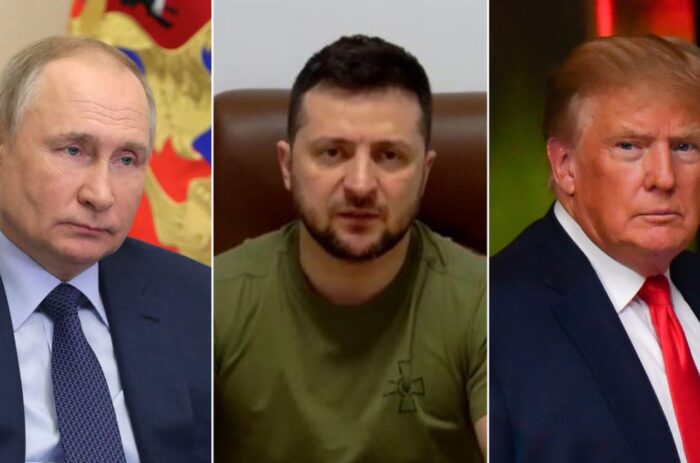redo Jump to...
print Print...
(by Walter E. Williams, Townhall.com) – Several airport security screeners have sent me polite letters criticizing some of my comments in my last two columns, prompting this question to you: In managing our personal security, should we guard against possible or probable threats? Consider the measures and the resource expenditures I might take to guard Mrs. Williams and me against all possible threats to our security.
Even though I live in Pennsylvania, well outside of tornado alley, I’d construct a tornado shelter because it’s possible for a tornado to strike anywhere. I’d no longer get into my car and drive off without doing a thorough check of my car’s hydraulic brake system for leakage. I’d build an iron-reinforced roof to guard against the possibility of a meteor. I’d also purchase a metal detector to do sweeps of my property, to guard against the possibility someone might have buried a land mine. I’d hire a detective and forensic accountant. Even though Mrs. Williams and I have been married 45 years, it is possible that she might be stashing some of my money into a Swiss bank account.
Were I to take those measures, I’m sure the average person would label me as either paranoid or stupid. Why? It would take resources away from guarding against more probable threats to our security, such as burglary. While my focusing on all possible threats wouldn’t be smart, it would make me a prime candidate to become a Transportation Security Administration (TSA) official. Their vision of airport security is to focus on the possible as well as the probable.
It is indeed possible for an 88-year-old man crippled with debilitating arthritis to be a terrorist. It’s possible that one of our Marines returning from Iraq for stateside reassignment, carrying ID and official reassignment orders, is also a member of al Qaeda ready to take out an airplane. It’s possible for a mother accompanied by her four children, or a 92-year-old woman, to be “mules” paid by terrorists to bring something on board to blow up the plane. It is also possible that a pilot plans to blow his plane up with a shoe bomb. That’s reason for making him take his shoes off. It’s possible that a blind person carrying a cigarette lighter will give it to a terrorist accomplice to light a shoe bomb in flight. There are other possible security threats. Women’s stockings and underwear, as well as men’s ties and belts, can be used as garrotes for strangulation. Soda straws can be used to blow poison darts.
While these are all possible threats, the question is, how probable are they? Resource expenditure on security threats just because they are possible means that those same resources cannot be spent on those far more probable. Moreover, if there were full implementation of the program to permit pilots to be armed, the more probable threats would become less so. In other words, arming pilots and some crew members would lessen a whole class of security threats.
The TSA’s determined opposition to passenger profiling is in itself a threat to airport security. Take their additional screening. They have every incentive to be politically correct. But suppose the TSA had to pay $1,000 to each passenger they selected for additional screening who was found to be no security threat. You can bet they’d develop a screening method that made more sense, and it would include some sort of passenger profiling, including racial profiling. And, by the way, liberals shouldn’t fret, because the U.S. Supreme Court has ruled in several affirmative action cases that provided there’s a compelling state interest, race can be used in decision making.
It’s my opinion that sensible TSA security measures would allow us to reallocate resources away from policing against possible but improbable threats to policing the far more probable source of threats — one being our border with Mexico.
©2005 Creators Syndicate, Inc.
Reprinted here with permission from Walter E. Williams and townhall.com. Dr. Williams is a nationally syndicated columnist, former chairman of the economics department at George Mason University, and author of More Liberty Means Less Government.
Questions
1. a) Define possible.
b) Define probable.
2. Describe some of the measures Dr. Williams would take if he wanted to guard himself against possible threats. Why would these measures seem foolish to most people?
3. Williams says that spending time and money on security threats just because they are possible means that those same resources cannot be spent on on those far more probable. How does he say more probable threats could be lessened?
4. What is the TSA? How does the TSA threaten airport security, according to Williams?
5. How does Williams suggest the TSA would develop a passenger screening method that makes sense?
6. Do you agree with racial profiling at the airport security screening locations? Explain your answer.
7. Will arming airline personnel and instituting passenger profiling make airline travel safer from terrorists? If not, what is an alternative solution?
8. Share your personal experience (good or bad) with airport security screeners. Email your answer to this question to editor@studentnewsdaily.com. Answers will be posted in the “Thoughts from Students” section.
To read “Stupid Airport Security, Part 1 or 2”, click here.

